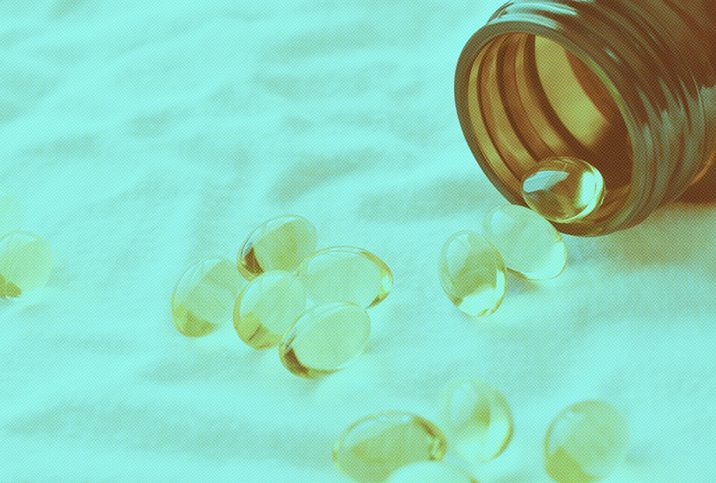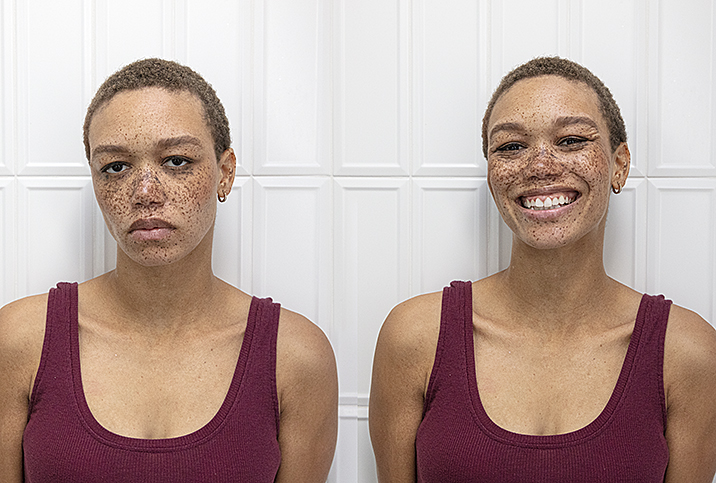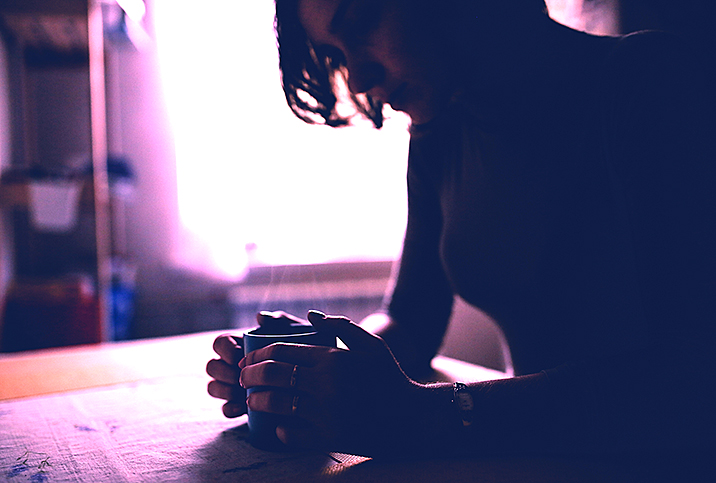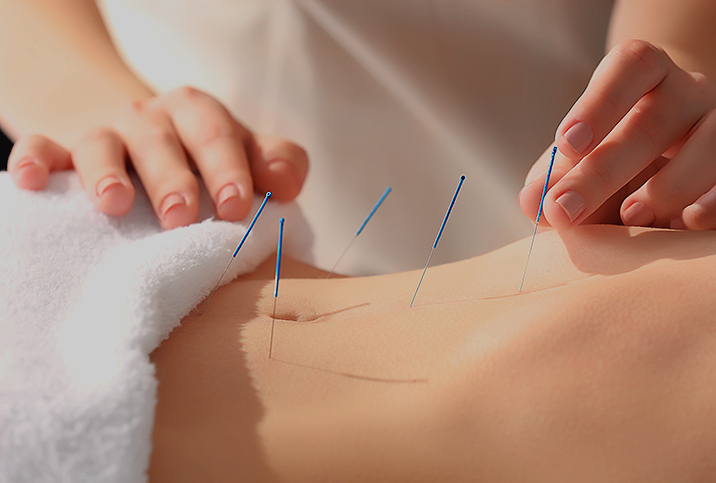Can Bitchweed Treat Your PMS Symptoms?
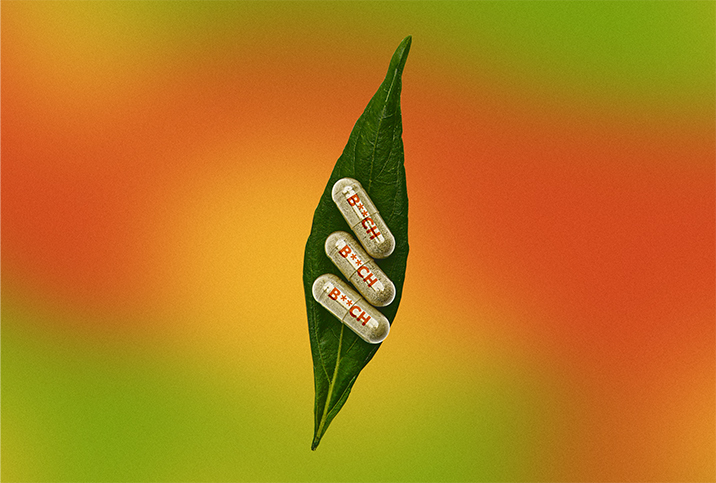
No, there isn't a plant actually called bitchweed. Bitchweed is the slang term for an herb called skullcap, which is believed by some to alleviate anxiety and irritability (or as some misogynists would say—bitchiness).
According to Kimberly Larson-Ohlsen, M.D., F.A.C.O.G., an OB-GYN and assistant professor in gynecology, integrative medicine and acupuncture at the University of Colorado, skullcap can be used for premenstrual syndrome and postpartum depression. "It is generally taken long-term as it does not have immediate acting effects," she explained.
Kimberly Boileau, N.D., a naturopathic doctor from Thunder Bay, Ontario, however, said she has found skullcap works quickly in treating PMS. "The effects are better with consistency of two to three days," she said.
The Office on Women's Health (OASH) cites that more than 90 percent of women in the United States experience PMS symptoms, including headaches and moodiness. So, treatments to help alleviate symptoms are in high demand.
"Skullcap helps not only with anxiety but also with general irritability," Boileau explained. She added that she herself keeps the herb handy for use.
The many uses of skullcap
There are two kinds of skullcap used in herbal medicine. "There is a Chinese skullcap also known as baikal skullcap or Scuttellaria baicalensis and in Western herbal medicine we use lateriflora, also called Scuttellaria lateriflora. Both are used to soothe anxiety and emotional distress," Boileau said.
Besides helping with PMS symptoms, skullcap has been used for other mood-related symptoms. "Skullcap has been used traditionally as a relaxing 'nervine' to support and calm the nervous system from nervous exhaustion, excitability, irritability, overwork, sleep disorders, depression and exhaustion," Larson-Ohlsen said. "It is used primarily for anxiety and insomnia, and I often use it in combination with other herbs such as lavender, passionflower and lemon balm."
Boileau has recommended skullcap to patients with insomnia, anxiety, tension and stress/irritability with PMS or postpartum depression. "The above conditions are important because an imbalance of stress (cortisol production and/or cortisol metabolism) alters the metabolic rate, the ability to get restorative sleep, the ovarian function and insulin metabolism, which all have downstream effects on the metabolic, mood and inflammatory (immune) systems," she noted.
The herb is thought to be useful where stress might interrupt the normal flow of neurotransmitters that would be produced when balanced levels of estrogen and progesterone are secreted from the ovaries.
How skullcap works
A 2003 study suggested the compounds in American skullcap interact with GABA receptors in the brain to produce a calming effect. GABA receptors are on nerve cells and receive the chemical messages that help regulate nerve impulses.
"Constituents responsible for the action are likely baicalin and baicalein because they bind to GABA receptors which are inhibitory neurotransmitters that calm the mind and body," Boileau explained.
Currently, there are few studies available exploring the effectiveness of skullcap and exactly how the herb works, particularly with PMS symptoms. "There are studies that have demonstrated binding of several alleged active flavonoids, including baicalin [Chinese skullcap] and its aglycone baicalein and to the benzodiazepine site of the GABA-A receptor," Larson-Ohlsen said.
"Skullcap also contains the amino acid glutamine which can provide sedative and anxiety-fighting effects," Larson-Ohlsen continued. "Traditional Chinese Medicine notes that it has anti-inflammatory, antibacterial, antiviral and anti-atherosclerotic properties."
Risks of skullcap
While some people may experience PMS symptom relief from using skullcap, the herb doesn't come without risks. Boileau stressed that it's important to make sure the skullcap you purchase is certified organic and as locally sourced as possible. "When you get herbs from other parts of the world, like China, they often dilute the herb you are buying with cheaper herbs," she said.
Some supplements may add other herbs to skullcap that could pose a severe threat to your health. "Risks mainly occur when the herb has been adulterated by other compounds such as Teucrium, which can lead to hepatotoxicity. One source notes giddiness, stupor, confusion, drowsiness and seizures with an overdose," Larson-Ohlsen explained.
Boileau noted that at one time it was thought skullcap could be toxic to the liver. "But it was later found that case studies where this occurred were due to an adulterated batch of skullcap with the herb germander," she said. According to one study, teucrium herbs (a genus of herbs more commonly known as germander) were one of the most common causes of herb-induced liver injury.
Skullcap itself does have some side effects, drowsiness being a big one. Since drowsiness is a side effect of skullcap, some health care providers recommend avoiding other substances that increase drowsiness while taking the herb, including alcohol.
Boileau cautioned skullcap could, in theory, potentiate the effect of sedatives. For patients on sleeping pills, narcotic pain medicine, muscle relaxers, or medicine for anxiety, depression, or seizures, taking skullcap is not recommended. Taking these medications in combination with the herb could increase the drowsiness effect.
If you're pregnant make sure to talk to your doctor before using the herb as there is no research on whether the herb has harmful effects on fetuses.
Should you try bitchweed?
Skullcap comes in different forms. So there's an option for everyone. "It can be taken as a capsule, tincture or tea," Larson-Ohlsen said.
You can even add some of the dried herbs to your other teas. "It is easy to put 1/2-1 tsp of dried skullcap herb into any caffeine-free tea to reduce anxiety, soothe tension or irritability," Boileau noted.
If you're looking to treat PMS symptoms, lessen anxiety or sleep better, you might want to consider trying skullcap. However, it's important to make sure to consult your doctor before trying the herb to make sure it's right for you and won't interact with any other medications you're taking.












